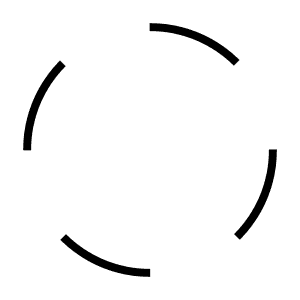We use cookies. To find out more click I Understandhere

In house label for Cafe OTO which documents the venue's programme of experimental and new music, alongside re-issuing crucial archival releases.
Totally beautiful and rare piano performance from Loren Connors, joined on guitar by long time collaborator Alan Licht. Celebrating thirty years of collaboration, Loren Connors and Alan Licht performed for two nights at OTO on May 5 and 6th, 2023. On the second night, with the stage lit in blue, Connors took up a seat on the piano stool whilst Licht picked up the guitar. What followed was the duo’s first ever set with Connors on piano - one of only a few times Connors has played piano live at all - here captured and issued as The Blue Hour. Its spacious warmth came as a total surprise live, but makes complete sense for a duo whose dedicated expressionism takes inspiration from a vast spectrum of emotion. Both opening with single notes to start, it doesn't take long before a surface rises and begins to shimmer. A run up the keys, the drop of a feedback layer on a sustained and bent note. The two begin to exchange notes in tandem and brief touches of melody and chord hover. After a while, Connors picks up the guitar, stands it in his lap and sweeps a wash of colour across Licht’s guitar. Sharp, glassy edges begin to form, open strings and barred frets darkening the space. When his two pedals begin to merge, Licht finds a dramatic organ-like feedback and it’s hard not to imagine Rothko’s Chapel, its varying shades of blue black ascending and descending in the room. When Connors goes back to the piano for the second side, the pair quickly lock into a refrain and light pours in. It’s a kind of sound that Licht says reminds him of what he and Connors would do when the duo first started playing together 30 years ago. It’s certainly more melodic than some of their more recent shows, and the atonal shards of At The Top of the Stairs seem to totally dissolve. What is always remarkable about Licht is that his enormous frame of reference doesn't seem to weigh him down, and instead here he is able to delicately place fractures of a Jackson C Frank song (“Just Like Anything”,) amongst the vast sea of Connors’ blues. Perhaps it's the pleasure of playing two nights in a row together, or the nature of Connor’s piano playing combined with Licht’s careful listening, but the improvisation on The Blue Hour feels remarkably calm and unafraid. There’s nothing to prove and no agenda except the joy of sounding colour together. Totally beautiful. --- Recorded live at Cafe OTO on Saturday 6th May 2023 by Billy SteigerMixed by Oli BarrettMastered by Sean McCannArtwork by Loren Connors Layout by Oli BarrettScreenprint by Tartaruga Manufactured in the UK by Vinyl Press. Edition of 300 standard LPs, 100 LPs with screenprinted artwork by Loren Connors printed as inserts. Also available on a limted run of 200 CDs.

Loren Connors & Alan Licht – The Blue Hour
OTOROKU is proud to reissue Evan Parker's first solo LP "Saxophone Solos". Recorded by Martin Davidson in 1975 at the Unity Theatre in London, at that time the preferred concert venue of the Musicians' Co-operative, Parker's densely woven and often cyclical style has yet to form; instead throaty murmurs appear under rough hewn whistles and calls - the wildly energetic beginnings of an extraordinary career. Reissued with liner notes from Seymour Wright in an edition of 500. --- "The four pieces across the two sides of Saxophone Solos – Aerobatics 1 to 4 – are testing, pressured, bronchial spectaculars of innovation and invention and determination. Evan tells four stories of exploration and imagination without much obvious precedent. Abstract Beckettian cliff-hanging detection/logic/magic/mystery. The conic vessel of the soprano saxophone here recorded contains the ur-protagonists: seeds, characters, settings, forces, conflicts, motions, for new ideas, to delve, to tap and to draw from it story after story as he has on solo record after record for 45 years. ‘Aerobatics 1-3’ were recorded on 17 June 1975, by Martin Davidson at Parker’s first solo performance. This took place at London’s Unity Theatre in Camden. ‘Aerobatics 4’ was recorded on 9 September the same year, by Jost Gebers in the then FMP studio in Charlottenburg, Berlin. Music of balance and gravity, fulcra, effort, poise and enquiry. Sounds thrown and shaken into and out of air, metal and wood. It is – as the titles suggest – spectacular." - Seymour Wright, 2020.

Evan Parker – Saxophone Solos
2023 repress of the OTOROKU re-issue of the legendary English free improvisation LP 'The Topography of The Lungs' by Evan Parker, Derek Bailey and Han Bennink. This was Evan Parker’s first recording as a "leader" and was the first release on Incus, the label Parker founded with guitarist Derek Bailey and drummer Tony Oxley. This re-issue has been produced from an original vinyl pressing from Evan's archives - carefully transcribed and restored by Andreas [LUPO] Lubich at Calyx in Berlin and features the original liner notes from Parker along with updated notes penned in 2014. "To talk further of the music we play is difficult. It’s criteria for success exist, but are elusive and indefinable beyond the intuitive level. We operate without rules (pre-composed material) or well-defined code of behaviour (fixed tempi, tonalities, serial structures etc.), and yet are able to distinguish success from failure." - From Evan Parker’s original liner notes (1970) This pressing of The Topography of The Lungs comes in a limited edition of 500 copies.

Evan Parker / Derek Bailey / Han Bennink – The Topography of the Lungs














